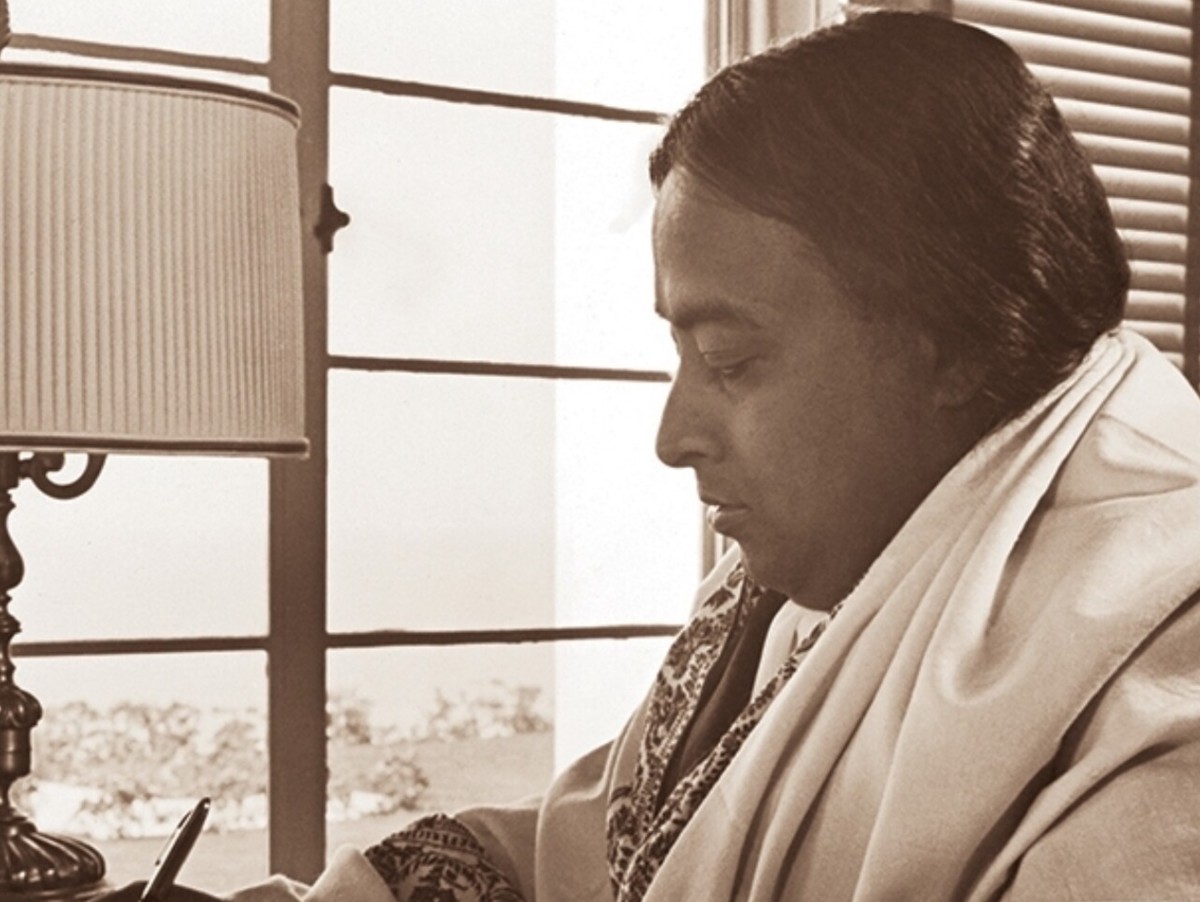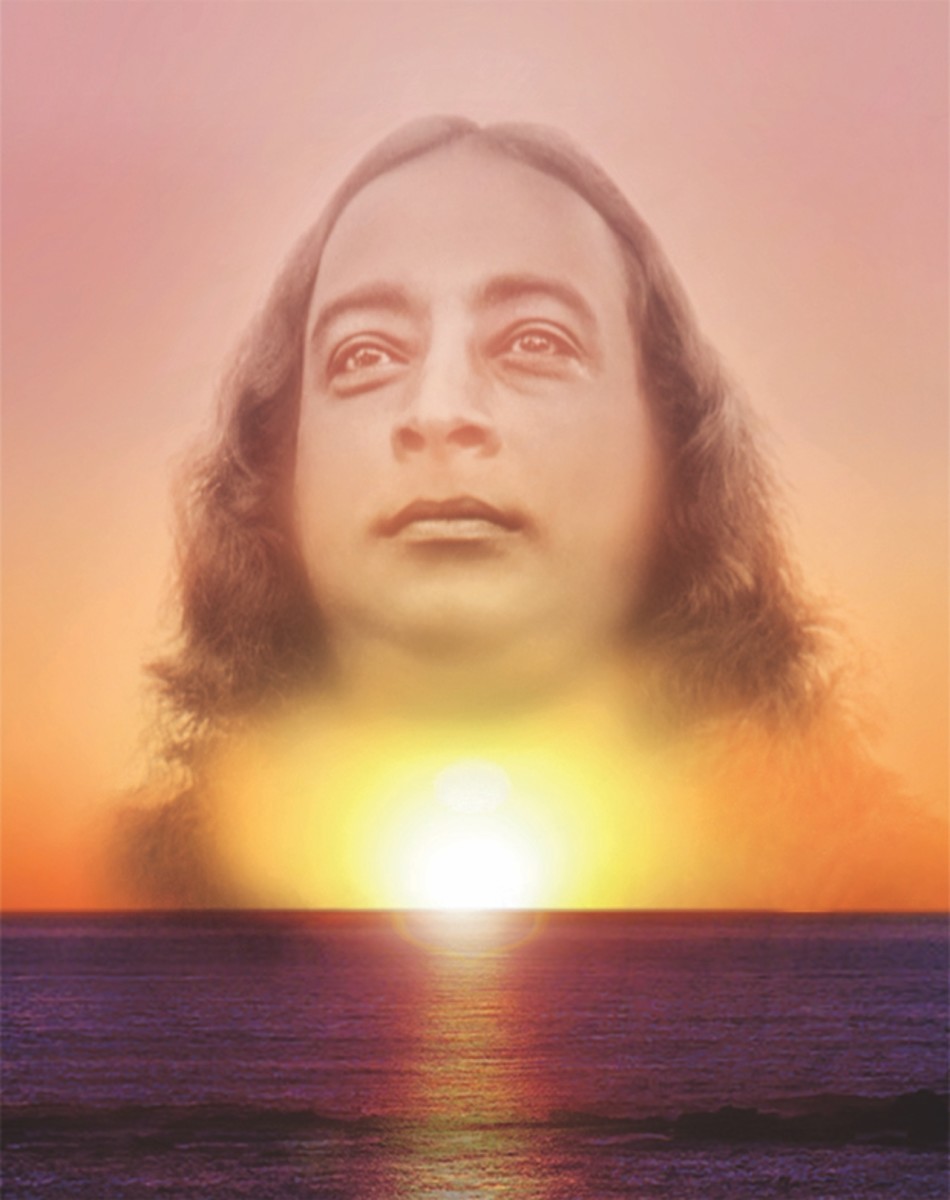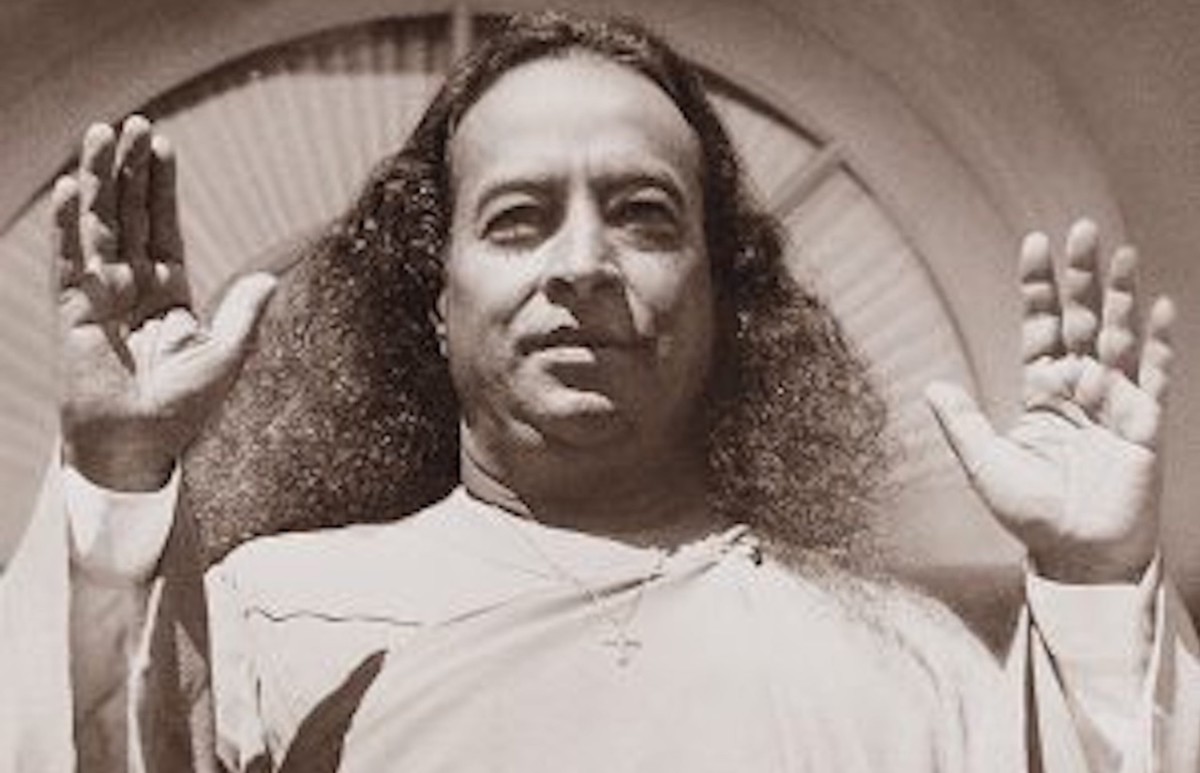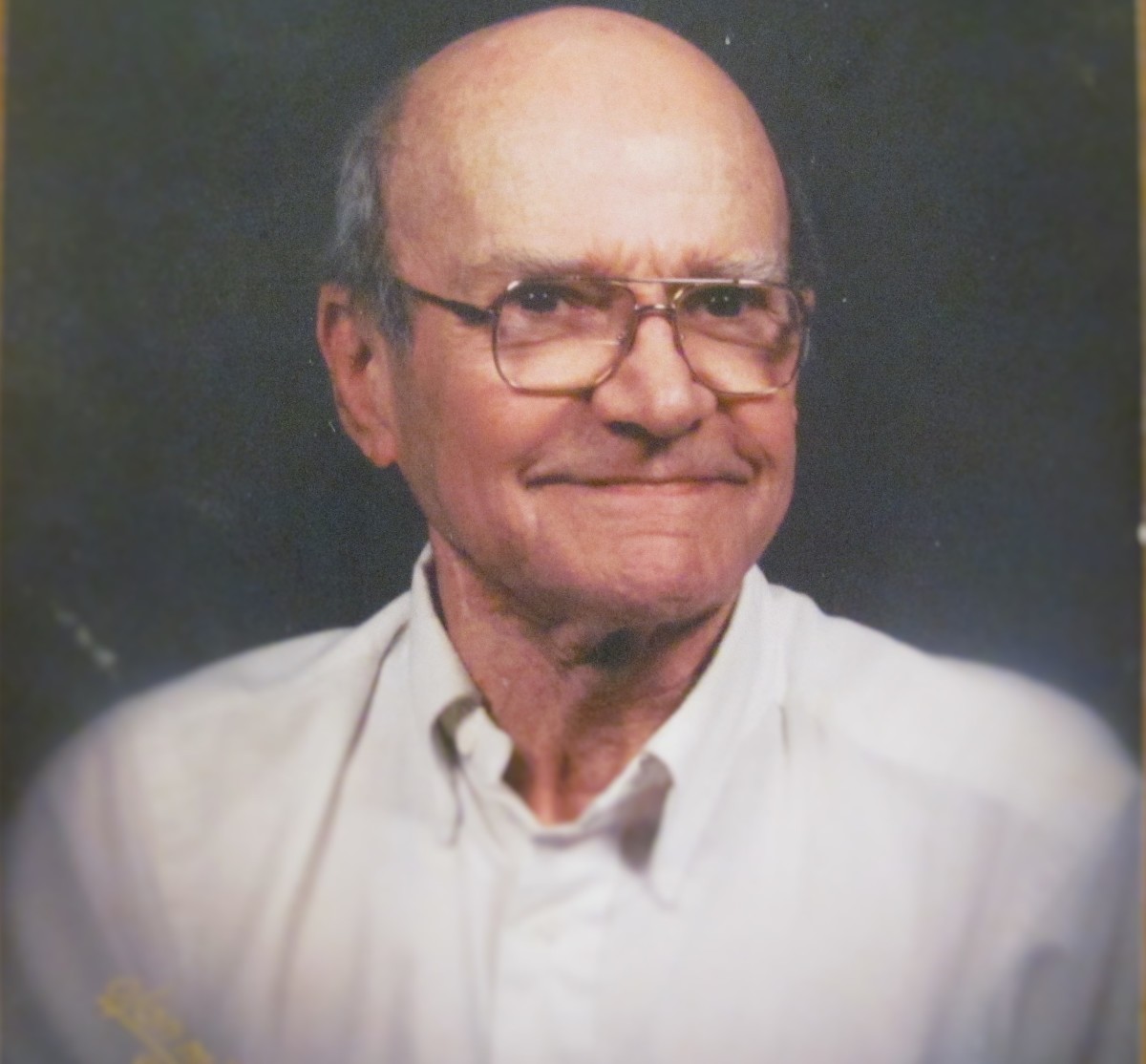Paramahansa Yogananda’s "Thy Secret Throne"

Introduction and Excerpt from "Thy Secret Throne"
This playful poem is displayed in twelve riming couplets: there are five couplets in the first stanza and seven couplets in the second stanza. The speaker is playfully accusing the Divine King Father of maintaining a secret hiding place from where He seems to taunt His children/subjects as He eludes them.
The speaker, however, also asserts that this Divine Belovèd cannot remain hidden forever from all of His children. Those who desire the Divine Presence with a loving and searching and demanding heart will find that Belovèd "with deeper mind."
Excerpt from "Thy Secret Throne"
Behind the screen
Of all things seen,
How dost Thou hide —
Elude the tide
Of marching human eyes,
That 'round Thee rushing hies?
(Please note: This poem appears in Paramahansa Yogananda's Songs of the Soul, published by Self-Realization Fellowship, Los Angeles, CA, 1983 and 2014 printings. A slightly different version of my poem commentary appears in my publication titled Commentaries on Paramahansa Yogananda’s Songs of the Soul.)
Commentary on "Thy Secret Throne"
In "Thy Secret Throne," Paramahansa Yogananda’s speaker is showing the playfulness of the Lord, Who only seems to be hiding somewhere deep in His created cosmos.
First Stanza: Dramatizing the Hiding Place of God
The speaker in Paramahansa Yogananda’s "Thy Secret Throne" dramatizes the hiding place of the Lord, Who seems to be reigning as a silent king somewhere deep within His land of cosmic creation.
But the Divine also resides in "all things seen." The Divine Essence secrets Itself "behind the screen" of every particle of creation. The speaker directly addresses the Belovèd, "How dost Thou hide . . .?"
He remarks that the Lord is evasive as He escapes the sight of "marching human eyes." Even as these individuals look for the Divine Presence, that Presence escapes them in their constant motion.
The speaker then offers encouragement to all those who seek, assuring them that it will "not be long" until they are able to contact the Object of their desire. With "eyes and grace" bestowed upon them by the Creator Himself, they will be able to discover the "hiding place" of the Divine Belovèd.
Second Stanza: The Miracles of Science
The speaker then testifies to the miracles of scientific study that have led to the remarkable capabilities of splitting atoms: "Sage science splits / Each atom knit."
But the speaker makes a rather startling statement as he mentions the overlooked purpose for splitting that tiny atom; instead of releasing the power of the atom for destructive purposes, the speaker reminds mankind that the original urge to learn through science is "to find apace / Thy hiding place."
All discovery, research, and learning have provided knowledge that has been employed by mankind for both good and ill, but the only true reason for any search for knowledge is to discover the Creator behind the creation. The speaker then cleverly poses the question: "Is heart of atom, electron, / Thy secret throne?"
Before answering the question, which at first might appear merely rhetorical, the speaker adds that, in fact, the scientist delves deep into phenomena to "find Thine art and lore" of all creative things and events that are hidden from the naked eye and ear.
The speaker then offers a clue to finding the answer to his question: he confirms that the home of the Divine seems to remain "far, remote" from human grasp. He avers that God is not to be found in His created things.
The scientist cannot find God in the depths of the atom or even within the electrons or other particles of the atom. Looking for God within His creation will always result in failure. Finding the hiding place of God will require that the seeker search with "deeper mind."
Kingdom of God Within
With the phrase "deeper mind," the speaker alerts the listener/reader to the fact that the "kingdom of God" is within each human being, and that kingdom is not an entity to be found outside of the human soul somewhere in the cosmos or in any of the island universes that orbit within that physical cosmos.
All true religions maintain that it is not the physical body nor the mind but only the soul of each human being that has the capacity to realize the Ultimate Reality or God. Jesus Christ averred this fact regarding this issue:
And when he was demanded of the Pharisees, when the kingdom of God should come, he answered them and said, The kingdom of God cometh not with observation: Neither shall they say, Lo here! or, lo there! for, behold, the kingdom of God is within you. ( Luke 17:20-21 King James Version) (my emphasis added)
The speaker in Paramahansa Yogananda's "Thy Secret Throne," as always, is making startling statements that may seem fanciful at first, but just a little thought, or experience with the yoga techniques of this great guru, brings those claims alive with possibility: the goal of uniting with Absolute Truth becomes much more than a quaint notion.

Related Paramahansa Yogananda Information
- Life Sketch of Paramahansa Yogananda: Father of Yoga in the West Paramahansa Yogananda is the monastic name of Mukunda Lal Ghosh. The sources for this brief life sketch of Paramahansa Yogananda are his Autobiography of a Yogi and the official Self-Realization Fellowship website.
Commentaries on Paramahansa Yogananda Poems
- Paramahansa Yogananda’s "Consecration" In the poem titled "Consecration," which opens Paramahansa Yogananda’s collection of spiritual poetry "Songs of the Soul," the speaker humbly consecrates his works to the Divine Creator. He also lovingly dedicates the collection to his earthly father.
- Paramahansa Yogananda's "The Garden of the New Year" In "The Garden of the New Year," the speaker celebrates the prospect of looking forward with enthusiastic preparation to live "life ideally!"
- Paramahansa Yogananda's "My Soul Is Marching On" This inspirational poem,"My Soul Is Marching On," offers a refrain which devotees can chant and feel uplifted in times of lagging interest or the dreaded spiritual dryness.
- Paramahansa Yogananda’s "When Will He Come?" How to stay motivated in pursuing the spiritual path remains a challenge. This poem, "When Will He Come?," dramatizes the key to meeting this spiritual challenge.
- Paramahansa Yogananda’s "Vanishing Bubbles" Worldly things are like bubbles in the sea; they mysteriously appear, prance around for a brief moment, and then are gone. This speaker dramatizes the bubbles’ brief sojourn but also reveals the solution for the minds and hearts left grieving for those natural phenomena that have vanished like those bubbles.
The Voice of Paramahansa Yogananda

This content is accurate and true to the best of the author’s knowledge and is not meant to substitute for formal and individualized advice from a qualified professional.
© 2025 Linda Sue Grimes





